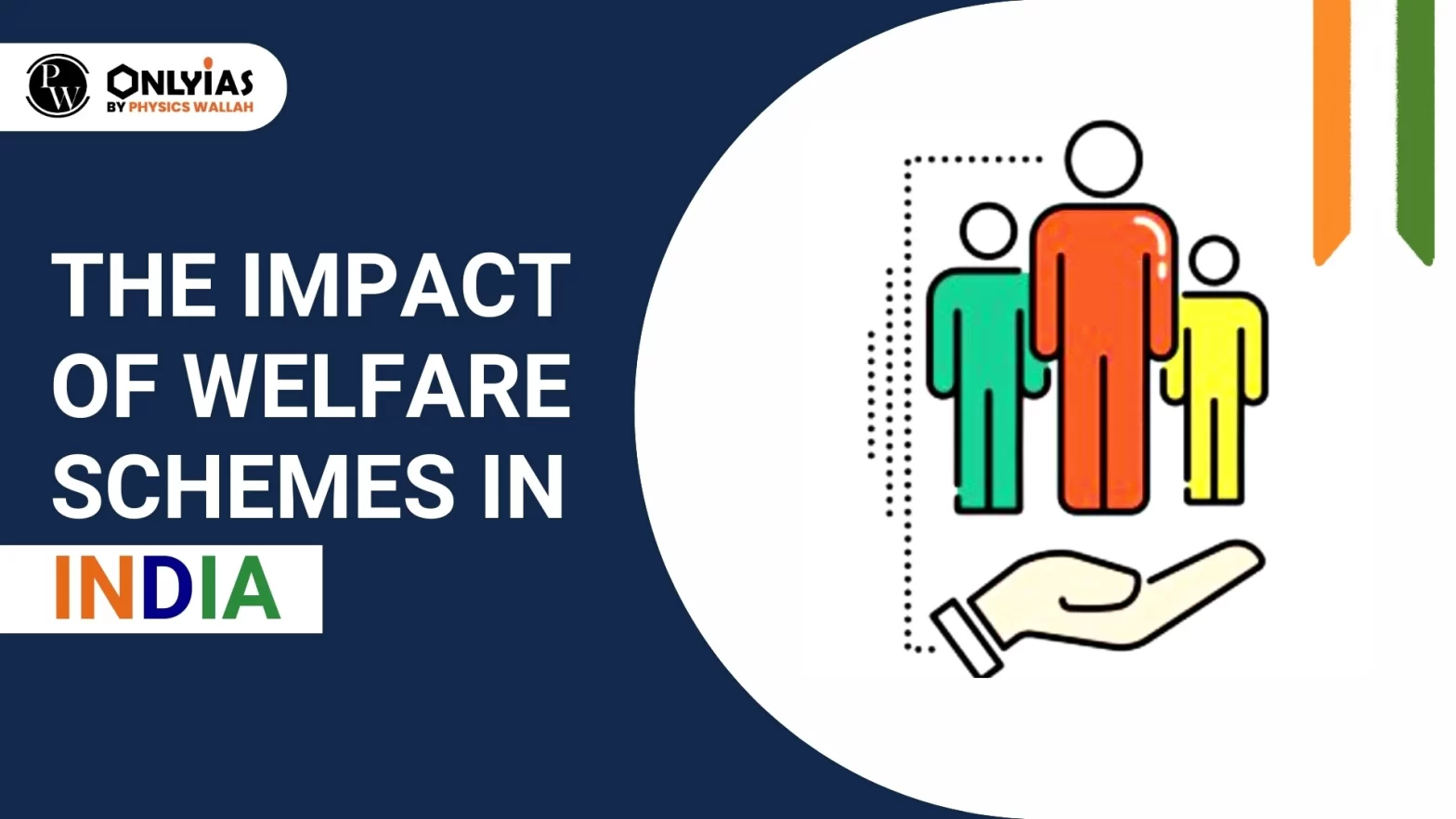Context:
| Relevancy for Prelims: Welfare Schemes in India.
Relevancy for Mains: Welfare Schemes in India, its significance, associated concerns, and steps that need to be taken to overcome its associated concerns. |
Some Key Welfare Schemes in India
- Public Distribution System (PDS): It aims to ensure food security by providing subsidized food grains to poor households.
- Mid-Day Meal Scheme: It provides free lunches to school children to boost nutrition levels and encourage education.
- National Rural Health Mission: It focuses on expanding healthcare access in rural rural areas. It expands healthcare access in rural areas.
- Pradhan Mantri Kaushal Vikas Yojana Yojana: It provides skill development programs to promote employment.
What is the significance of welfare schemes in India?
- Alleviating Poverty: Income support, employment generation, and access to essential services reduce distress migration and provide income security in rural areas.
- Promoting Equity: Targeted assistance to marginalized groups like Dalits, tribals, women, and the differently-abled through reservations in education and jobs.
- Enhancing Human Development: Focus on healthcare, education, and skill building improves overall human development.
- National rural health mission expands healthcare in villages.
- Maintaining Political Stability: Addressing socio-economic challenges and grievances through schemes such as farm loan waivers to assuage rural distress.
- Providing Crisis Relief: Safety nets during downturns or disasters, such disasters, such as the COVID-19 financial assistance schemes.
What are the concerns associated with welfare schemes in India?
- Welfare vs. Freebies Debate: Populist freebies may distort budgets versus long-term welfare spending.
- Financial Burden: Expanding welfare expenditure impacts fiscal deficit, for example, farm loan waivers strain budgets.
- Dependency and Self-Reliance: Risk of perpetuating dependency and reducing self-reliance, such as continued reliance on PDS rather than skill development.
- Corruption and Leakage: One of the major concerns in welfare delivery, for instance, is irregularities in NREGA wage payments.
- Bureaucratic Inefficiencies: Exclusion errors and targeting issues, like difficulties in identifying beneficiaries among BPL families.
- Market Distortions: Market distortions due to measures like subsidies and price controls, such as the impact of fertilizer subsidies on private players.
- Political Misuse: Political misuse to cultivate vote banks, leading to social divisions through competitive freebies by political parties.
Time for Transitioning to Well-Being
- Data-Driven Policies: Distinguish between welfare schemes and freebies through data-driven policies.
- Priority Areas: Prioritize healthcare, education, skills, and infrastructure for holistic human development.
- Promote Entrepreneurship: Promote entrepreneurship, investment, and jobs rather than subsidies.
- Empower Local Participation: Encourage local participation in planning bottom-up solutions.
- Inclusive Approach: Ensure inclusion of women, minorities, and marginalized sections.
- Environmental Sustainability: Integrate environmental sustainability into welfare programs.
Conclusion:
While welfare schemes in India have significantly contributed to poverty alleviation and social equity, addressing concerns such as financial sustainability, dependency, and bureaucratic inefficiencies is crucial. A transition towards data-driven, inclusive-sustainable policies, prioritizing holistic human development and local empowerment are important for the continued success of welfare initiatives in the country.
![]() 17 Nov 2023
17 Nov 2023

